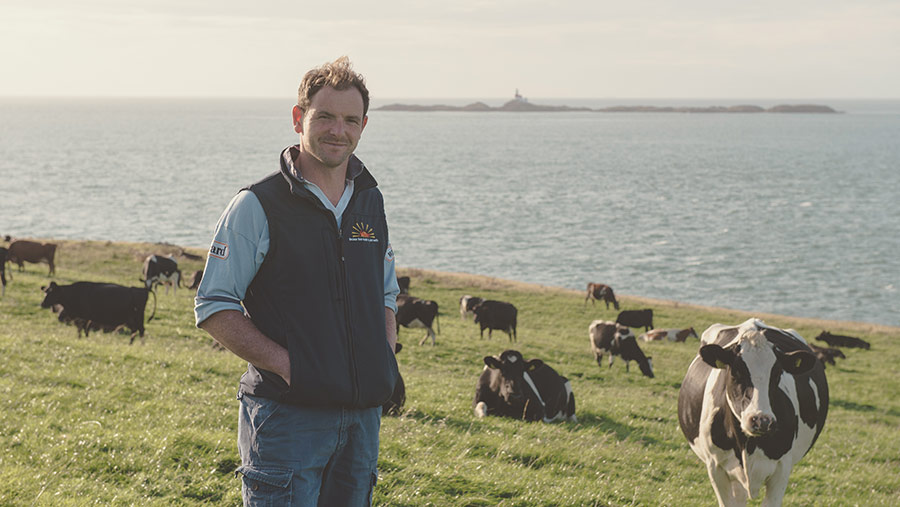Farmer Focus: Heavy rain disrupts March grazing
 © Lindsay Walker
© Lindsay Walker The rain returned after some horrendous weather in February and a period of cold but dry weather at the start of March. Those dry spells made for great calving and grazing conditions. By 10 March, it was five weeks since the planned start of calving and we were 70% calved.
The use of sexed semen for the first time has proved to be a success. There was a good number of heifers born in the first four weeks, along with several saleable beef calves from British Blue, and now some Angus calves are starting to arrive to mark the end of the run of artificial insemination.
See also: How an Irish dairy farmer is achieving 29% return on capital
Cows were grazing well up until the rain, with conditions allowing for good residuals and for some of our wetter fields to be grazed off in recent days. By the end of this week (14 March), we will have grazed 50% of the farm, leaving us the remainder for the rest of this month and the first few days of April.
Grass growth in early February was good, despite the wet weather. However, while the dry conditions were very welcome, the cold nights put a stop to any regrowth on our grazed paddocks.
The yearling heifers are all out grazing now and have been looking amazingly content. We have a seven-week run now up to their planned start of mating, and we will be grazing them on high-quality, high-metabolisable-energy grass with fresh breaks each day.
We have all performed well as a team across the farm and have dealt with the pressure points together. Sam – one of our staff members – has taken care of the parlour side fantastically well.
This is without doubt a vital and pivotal role at this time of year. Many of the foundations for the success of the year are set now, from opening with and maintaining low somatic cell counts and bactoscan results, to caring for the cows after calving and then in the build-up to serving.
It is a time-consuming job and the sheer number of hours spent in there can be mind-numbing at times, but they pay back 10 times over in the course of the year.
Johnjo Roberts farms on Anglesey. Read more here
